- Home
- Isaac Hooke
Alien War Trilogy 1: Hoplite Page 9
Alien War Trilogy 1: Hoplite Read online
Page 9
“It’s an interesting theory,” Parnell said. “And until we have any more evidence to the contrary, I’ll go with it. Especially considering that our Raptors were attacked by rockets from that jungle. That’s certainly tech the SKs would possess.”
“Unless those mobile silos were captured from the wreckage of the John A. McDonald and used by an alien enemy,” Manic said. “That’s a possibility, too. I’m sure the Decatur class supercarrier carried a few types of artillery in its inventory, after all.”
“I’m sticking with the SK theory for now,” Parnell said.
“Do we know yet where the secondary Slipstream leads?” Rade asked.
“No,” Parnell admitted. “The captain launched drones to measure the farther Slipstream, but they weren’t due to arrive for a few more days yet.”
“All right,” Facehopper said. “Let’s split up and see what we can find. Lieutenant Vicks, since you’re done with your analysis, please join Bender and Tahoe.”
“And Harlequin,” the Artificial piped in.
Rade marched his Hoplite directly toward one of the domes near the center of the cavern. He avoided its airlock, which wouldn’t fit his mech, and forced his way through a tear in the outer fabric instead. He found himself in what looked like a berthing area, replete with 3D-printed bunk beds and lockers. He began rifling through the latter, which was tricky, given his large fingers.
Manic’s voice came over the comm.
“You thought you were going to get away from me telling your story, huh Skullcracker?” Manic said. “You thought I’d forget?”
Skullcracker didn’t answer.
“Well,” Manic continued. “Skullcracker was still a caterpillar, three months new to the team, when we were deployed to Mongolia. In our very first mission, he was separated from my fire team. The insurgents bagged him, temporarily disabling his Implant. It reactivated again a few days later, allowing us to track him down. I led a rescue party to retrieve him. We found him in a house inside a village under rebel control.
“When we broke into that house, I thought at first he had been skinned alive or something, because he was completely naked and covered in blood. ‘Not mine,’ he said. I checked my HUD and sure enough most of it wasn’t his. And his vitals were fine, though he exhibited signs of physical and psychological torture. We sent combat robots to clear the rest of the the house, and we got some brutal footage back in return.”
“From the combat robots shooting up the rebels?” Grappler asked.
“Not at all,” Manic said. “The occupants were already dead. Let’s just say none of the seven individuals scattered throughout the place were identifiable. He had cracked open all of their skulls with a blunt force weapon. I reviewed the video logs recorded by his Implant, and apparently Skullcracker had told them all before they began his interrogation: if they touched him, he was going to break their skulls. One by one. They laughed.
“When we brought him back to the forward operating base later that night, and he washed the blood off his face, we discovered he had tattooed a skull into his face during his captivity.”
“Where did he get the ink?” Keelhaul asked. His voice warped slightly, because he was still in the adjacent chamber with TJ. “And the needle?”
“The ink was their blood,” Manic said. “The needle was the syringe his captors used to interrogate him.”
“That doesn’t sound very... hygienic,” Harlequin said.
Rade hadn’t known the story, and it made him think of that incredibly detailed skull tattoo in a completely new light. He wasn’t sure whether everything Manic said was true or not, but he had a feeling the MOTH hadn’t embellished the story very much.
“You tattooed that yourself?” Grappler said over the comm, the incredulity evident in his voice. Or was that awe? “You must have been an artist in a past life.”
“I was a welder apprentice,” Skullcracker said.
“I didn’t even know there were welder jobs anymore,” Keelhaul said. “I thought the robos took them all.”
“There is still some demand for manmade welded goods,” Trace said. “Though it is small, admittedly.”
“Okay people,” Facehopper said. “I’m going to have to ask for quiet on the comms, please. I can’t concentrate with you blokes incessantly chattering away like that, and I don’t want to mute the line in case the scouts or another one of you has something to report.”
On the one hand, Rade was relieved at the ensuing silence, but on the other he missed the camaraderie. It was a good relief of the tension knotted into his nerves from the fight. Even so, he knew there would be more than enough banter to come later. It was time to do his job.
Rade found nothing of interest in the lockers, other than a few personal belongings—lockets, hair clips, clothing. He departed the dome empty-handed to search another. As he left, he marked it purple on the overhead map so that no one would search the same place. Then he made his way toward the next closest dome.
He discovered no items of note there, nor in the three other domes he searched thereafter, one of which proved to be a waste reclamation unit. He left that latter with his mech coated knee deep in fecal matter.
When all the domes were marked purple on the map, Facehopper reconvened the platoon for a situation report. TJ and Keelhaul returned from the adjacent chamber, carrying the damaged holographic drives; Tahoe, Bender, Harlequin and Vicks were still working on repairing the oxygen extractors; Snakeoil, Mauler and Grappler reported in from the entrance—all was quiet, and the HS3 dispatched to the top of the rock formation detected no sign of hammerheads anywhere upon the surrounding terrain. The others meanwhile relayed what they found in the domes—a few broken 3D printers, bunks and lockers, personal items, ruined foodstuffs. Rade could have sworn he heard a few of the MOTHs sniggering at him over the comm when his turn to report came.
Facehopper ordered them to dismount their mechs, so that they could rest while they waited for the HS3s to complete the mapping of the cave system.
As Rade abandoned his Hoplite, Bender joked: “Hey, boss. What the hell did you step in? I can smell your mech through my jumpsuit!”
Rade didn’t bother to look in his direction. “I stepped in your backyard, bro. Wish you’d told me beforehand you fertilize your shrubs with your own excrement.”
Manic chimed in: “By shrubs, you mean his genitals right?”
“Funny,” Bender said.
eleven
Rade and the others positioned their unoccupied Hoplites in a circle around the makeshift camp and activated “guard” mode. The mechs rotated their lasers into place; some of them remained near the edge of the camp, while others patrolled the cavern.
When outside of the mechs, the oxygen usage of the MOTH jumpsuits automatically switched to the local tanks. The individual canisters contained two days worth, just like the commander and the chief scientist, but if it came to it they could transfer oxygen from the mechs to their suits, restocking O2 levels.
Rade passed the time by moving between the men, trying to maintain morale. The chief did much the same. Commander Parnell meanwhile kept mostly to himself, though he hovered near Lieutenant Vicks and those working on the oxygen extractor. The commander probably felt out of his element surrounded by so many enlisted personnel, preferring the commissioned officers he was used to.
Rade noticed that Tahoe seemed to be joking a lot with Vicks, or at least that was the impression he had, because whenever he looked at the group by the oxygen extractor, she seemed to be always laughing at something or other he said. Rade wasn’t sure what to think. Tahoe was a married man. He shouldn’t be leading her on like that. Then again, men and women always wanted what they couldn’t have.
As an LPO, Rade had no right to interfere with the private life of the MOTHs who served beneath him, unless those private lives interfered with their duty or violated navy regulations. If Tahoe wanted to lead her on, then so be it. Still, Rade wondered if he should take Tahoe aside for a short
talk. Though the question was, should he approach the conversation from the point of view of the LPO, or the friend?
Maybe it’s time to move the friendship to the back burner, Rade thought. And the LPO to the forefront. At least for the short term. Because I’m not sure I can continue to be both.
Rade decided he would let the behavior pass for the moment. Because honestly, Tahoe wasn’t doing anything wrong.
After two hours Bender announced: “The HS3s and Centurions have nearly completed their survey of the cave system. The only thing of interest discovered so far is a cavern near the deepest sections. It looks like some of the survivors made a last stand there. Laser burns line the walls of the tunnel leading to the chamber. Inside, a long row of stalactites has collapsed. The HS3s found powder burns in the jagged edges left on the ceiling. It’s likely the survivors laid a trap for the enemy there. A few Centurions are combing through the broken stalactites, but so far they’ve found no bodies, neither human, alien nor mutant. There isn’t even any of that bioengineered blood we found coating our mechs. Whoever attacked sure did a good job of cleaning up.”
“Let me know if they find anything,” the chief said.
A few minutes later Bender spoke once more over the comm. “Well this is interesting. Very, very interesting.”
“What is it?” Commander Parnell asked.
“Two Centurions just found an armory near the last-stand chamber. Surprisingly wasn’t looted by the enemy. There are still several frags and electromagnetics in stock. They also found an Energy M7.” The M7 was an MRAAWS—a Multi-Role Anti-armor Anti-tank Weapon System. Useful against tanks. And mechs.
Facehopper nodded behind his faceplate. “It looks like the survivors of the John A. McDonald definitely had time to plan their evacuation of the ship.”
“There might be a few Dragonflies out there we overlooked,” Parnell said.
“Maybe,” Rade said. “But it’s likely those hammerheads dragged them away into the jungle, like they did yours.”
“Have the Centurions gather as many of the grenades as they can carry,” Facehopper told Bender. “Tell them to bring us the goods. And get me that M7.”
“That begs the question,” Harlequin said. “Why didn’t any of you bring an M7 in the first place?”
“Shut up, bitch,” Bender told him.
“You were the only one of us who didn’t have a mech,” Rade said. “You could have chosen an M7 to haul around for yourself. Instead, you picked a plasma rifle.”
Harlequin shrugged. “I suppose I believed your Hoplites would be good enough.”
We all did, Rade thought.
An hour later a troop of combat robots returned, along with several HS3s. Several fresh grenades were attached to the harnesses of the former. One of the Centurions carried the M7 hoisted over one shoulder. They reported straight to Bender.
After a few minutes, Bender said: “The Centurions found something of interest while they combed through the smashed stalactites.”
“What’s that?” Commander Parnell said.
Bender handed over a large corrugated cylinder.
The commander held up the object to examine it. “Why didn’t you report this earlier?”
“Would it have made a difference?” Bender said. “I wanted to have a peek at the item personally.”
Commander Parnell continued to study it. “Looks like a mech servomotor of some sort.”
“That’s exactly what it is,” Bender said.
“Is it possible the survivors had a mech with them?” Vicks asked.
Commander Parnell’s eyes seemed to defocus behind his faceplate. “According to the manifest in my archives, the John A. McDonald launched with several ATLAS 5s in its inventory.”
“This servomotor definitely ain’t the kind found in an ATLAS 5,” Bender said. “The design appears more Sino Korean than UC, actually.”
“Lending credence to my theory that the SKs are behind this,” Lui chimed in.
“What are you saying?” Fret asked. “The SKs attacked with bioengineered weapons, and mechs?”
“I don’t know,” Bender said. “But some sort of machine attacked them in that cavern. One, or many.”
The platoon members were quiet for a moment.
“Misdirection,” Skullcracker said suddenly.
“What’s that?” Facehopper asked.
“Misdirection.” Skullcracker stepped forward. “Could be that whoever did this wants us to think the SKs were behind it.”
Facehopper thrummed a gloved hand on the opposite arm assembly.
“Snakeoil,” Facehopper transmitted. “Have you received a response from the fleet yet?”
“No,” Snakeoil said over the comm. “But the white flashes have stopped in the sky. I’m not sure if that’s good or bad.”
Rade waited for Fret to make his usual pronouncement of doom, but thankfully the pessimistic comm officer held his tongue.
Facehopper pursed his lips behind his faceplate. He glanced at the nearby Centurions with their grenade-laden harnesses. “Restock your Hoplites with grenades, people. Harlequin, the M7 is yours.”
The MOTHs reloaded their mech launchers with frags and electromagnetics. Harlequin dutifully grabbed the M7, depositing it near his work area beside the oxygen extractor.
When that was done, Manic swiveled toward Facehopper and said: “So what now, Chief?”
Facehopper in turn glanced at Commander Parnell.
“We wait here until communication is reestablished with the Rhodes,” Parnell said. “At least until the oxygen extractor is repaired. Seems the safest location, for the moment.”
“That’s what the survivors thought,” Fret said. “Until they were wiped out.”
“I say we relocate somewhere else entirely,” Lui said. “Those hammerheads saw us go into the cave. They know we’re hiding here. They’ll relay our position to the SKs. We can expect an attack.”
“You don’t know they’re capable of that level of intelligence,” Tahoe argued.
“And we don’t know they’re not,” Lui said. “But wouldn’t you rather err on the side of caution? And even if they didn’t have the intelligence to communicate our position, the SKs—or whoever attacked the John A. McDonald—were likely observing from the jungle the whole time. Someone launched those missiles, after all. We’re going to have to investigate that at some point or other.”
“Go into that jungle?” Bomb said. “Hell no! Not with those hammerheads waiting to ambush us. It’s a death trap.”
“We can send a few HS3s in at the very least,” Lui said. “With orders to retreat at the first sign of trouble.”
“How long until your men have the oxygen extractor and water reclaimer repaired?” Commander Parnell asked Facehopper.
“Bender?” the chief relayed.
“We’re looking at, well, probably at least another three hours,” Bender replied.
“And how easy will the two items be to carry out of here?” Parnell asked. “Considering that we’ll have to climb down a rock face.”
“Not easy,” Bender said. “We’ll probably have to expend the jump fuel of a few mechs. Might be better to stash the devices here, or in a side chamber, and come back as needed.”
“If we leave, I don’t think we’re coming back.” Parnell touched his faceplate as if he were about to rub his chin but the polycarbonate stopped him. “All right, Chief, I’ll give your men two hours to repair those devices. Once operational, we’ll replenish our oxygen and water reserves. After that, we relocate, bringing the devices with us. Do we know the day-night cycle of this planet?”
“We do,” Vicks replied. “It’ll be dark in about an hour.”
Parnell nodded. “We can move out under the cover of darkness, then.”
“It won’t matter,” Lui said. “If we’re dealing with SKs, they can use thermals to spot us just as easily from afar.”
“Any advanced race could,” Tahoe said.
“But let’s say we destr
oyed any SK presence when we took out those rocket launchers in the jungle...” Parnell said.
“Not likely,” Manic piped in.
“But let’s say we did,” the commander pressed. “And that the hammerheads were the only enemies lying in wait. Wouldn’t you agree that it would be safer to travel by night? Maybe they can’t see in the dark.”
“Lieutenant,” Lui said. “When you analyzed the DNA, could you tell if any cat or tiger genes were spliced in? Maybe owl?”
“If you’re asking me if the bioengineered weapons can see in the dark,” Vicks replied. “I don’t know. But I’d say it’s a good possibility that whoever designed them would have planned for every contingency.”
“We’ll dispatch an HS3 across the plains when it grows dark,” Parnell said. “Sending it into the jungle. We’ll place another one in the center of the plain to act as a repeater. The rest of us, meanwhile, will clamber down and advance west, away from the jungle, utilizing jumpjet fuel as necessary to convey the extractor and reclaimer.”
“Wait,” Rade said. “What if the HS3 draws out the hammerheads as soon as it enters that jungle? We’ll be stuck in the open on those plains again. We should send it now, and only when we determine that the jungle is clear, should we proceed.”
“I agree,” Facehopper said.
“Can we ever truly be sure something like a jungle is clear?” Mauler said. “There are a lot of places to hide in such a place. Ask our snipers.”
“This is true,” Trace agreed.
“We can’t ever be completely sure,” Facehopper admitted. “But at least we’ll have some idea if they’re waiting to spring an obvious trap.”

 Warden 2
Warden 2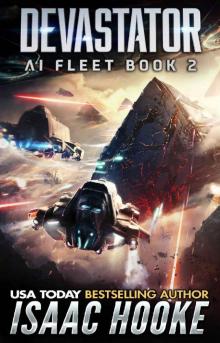 Devastator
Devastator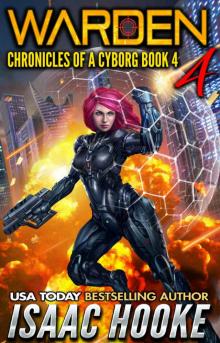 Warden 4
Warden 4 Emperor
Emperor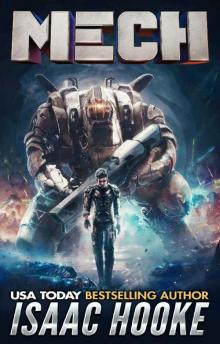 Mech
Mech Conqueror
Conqueror Fighter
Fighter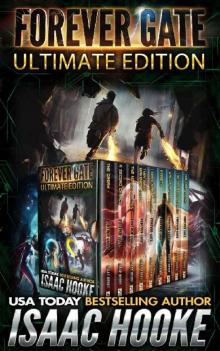 The Forever Gate Ultimate Edition
The Forever Gate Ultimate Edition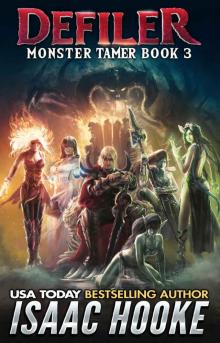 Defiler
Defiler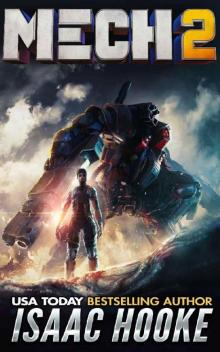 Mech 2
Mech 2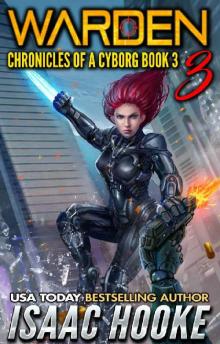 Warden 3
Warden 3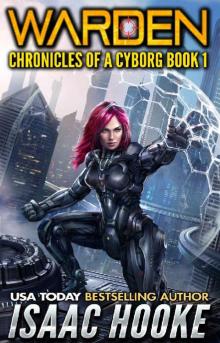 Warden 1
Warden 1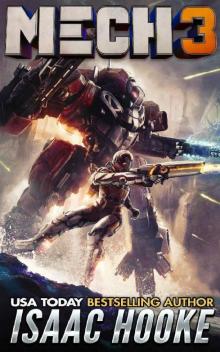 Mech 3
Mech 3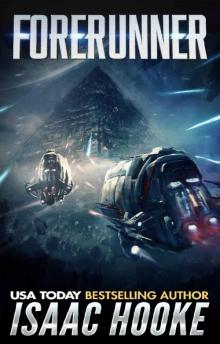 Forerunner
Forerunner The Alliance (AI Empire Book 2)
The Alliance (AI Empire Book 2)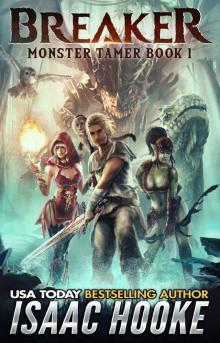 Breaker (Monster Tamer Book 1)
Breaker (Monster Tamer Book 1) Bender of Worlds
Bender of Worlds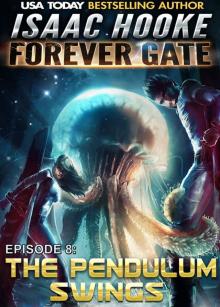 The Pendulum Swings (The Forever Gate Book 8)
The Pendulum Swings (The Forever Gate Book 8)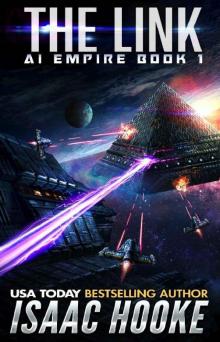 The Link
The Link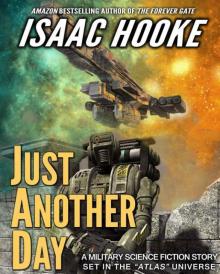 Just Another Day
Just Another Day Star Warrior
Star Warrior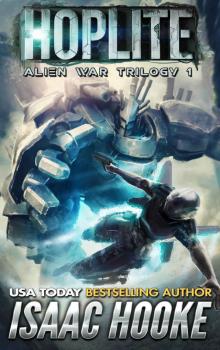 Alien War Trilogy 1: Hoplite
Alien War Trilogy 1: Hoplite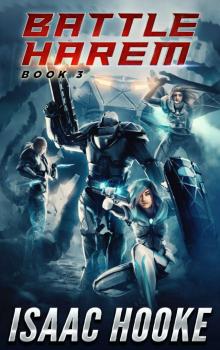 Battle Harem 3
Battle Harem 3 The Ethan Galaal Series: Books 1 - 3
The Ethan Galaal Series: Books 1 - 3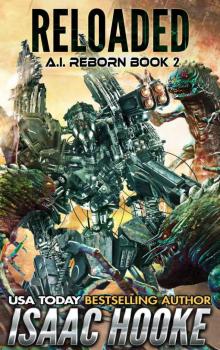 Reloaded
Reloaded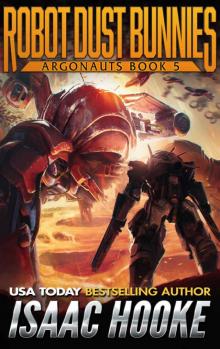 Robot Dust Bunnies (Argonauts Book 5)
Robot Dust Bunnies (Argonauts Book 5) Battle Harem
Battle Harem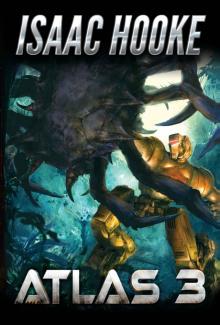 ATLAS 3 (ATLAS Series Book 3)
ATLAS 3 (ATLAS Series Book 3)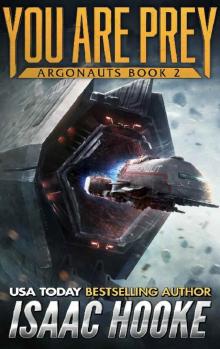 Argonauts 2: You Are Prey
Argonauts 2: You Are Prey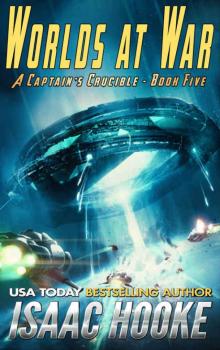 Worlds at War (A Captain's Crucible Book 5)
Worlds at War (A Captain's Crucible Book 5)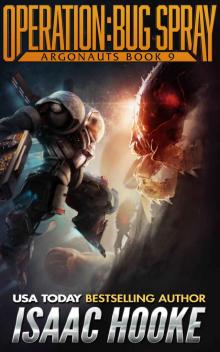 Operation: Bug Spray (Argonauts Book 9)
Operation: Bug Spray (Argonauts Book 9)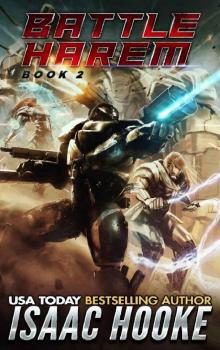 Battle Harem 2
Battle Harem 2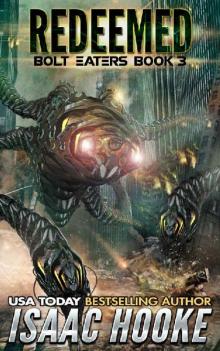 Redeemed (Bolt Eaters Trilogy Book 3)
Redeemed (Bolt Eaters Trilogy Book 3)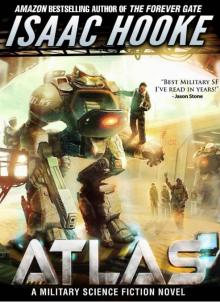 Atlas
Atlas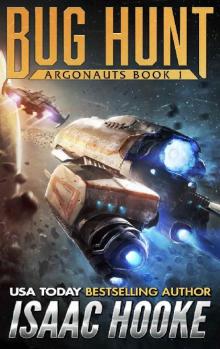 Argonauts 1: Bug Hunt
Argonauts 1: Bug Hunt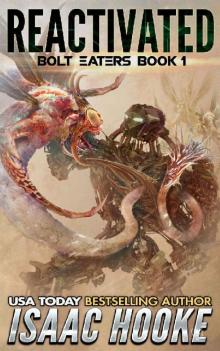 Reactivated (Bolt Eaters Trilogy Book 1)
Reactivated (Bolt Eaters Trilogy Book 1)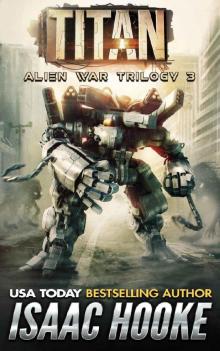 Alien War Trilogy 3: Titan
Alien War Trilogy 3: Titan Flagship (A Captain's Crucible #1)
Flagship (A Captain's Crucible #1)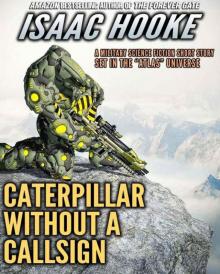 Caterpillar Without A Callsign
Caterpillar Without A Callsign The Forever Gate
The Forever Gate He Who Crosses Death (Star Warrior Quadrilogy Book 3)
He Who Crosses Death (Star Warrior Quadrilogy Book 3)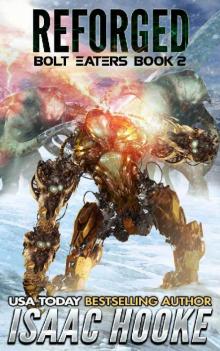 Reforged (Bolt Eaters Trilogy Book 2)
Reforged (Bolt Eaters Trilogy Book 2)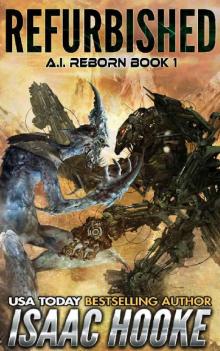 Refurbished
Refurbished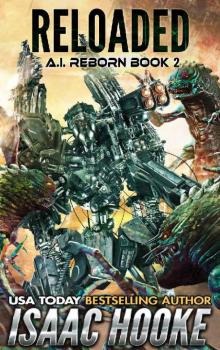 Reloaded (AI Reborn Trilogy Book 2)
Reloaded (AI Reborn Trilogy Book 2) He Who Crosses Death
He Who Crosses Death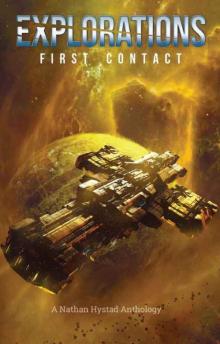 Explorations: First Contact
Explorations: First Contact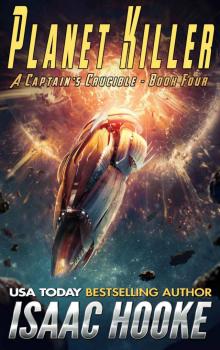 Planet Killer (A Captain's Crucible Book 4)
Planet Killer (A Captain's Crucible Book 4)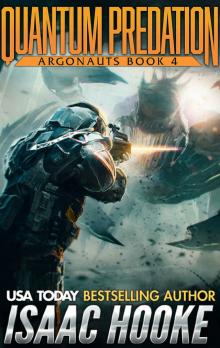 Quantum Predation (Argonauts Book 4)
Quantum Predation (Argonauts Book 4) Clandestine-IsaacHooke-FreeFollowup
Clandestine-IsaacHooke-FreeFollowup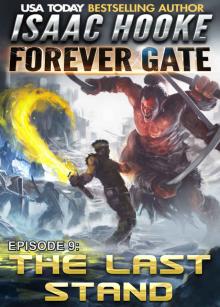 The Last Stand (The Forever Gate Book 9)
The Last Stand (The Forever Gate Book 9)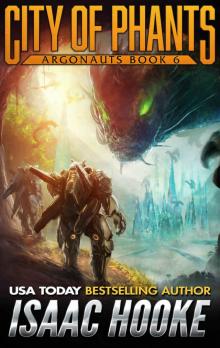 City of Phants (Argonauts Book 6)
City of Phants (Argonauts Book 6)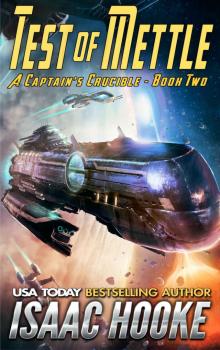 Test of Mettle (A Captain's Crucible Book 2)
Test of Mettle (A Captain's Crucible Book 2)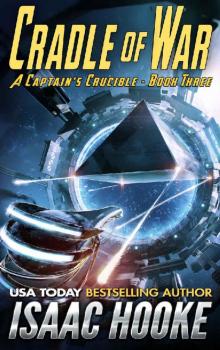 Cradle of War (A Captain's Crucible Book 3)
Cradle of War (A Captain's Crucible Book 3)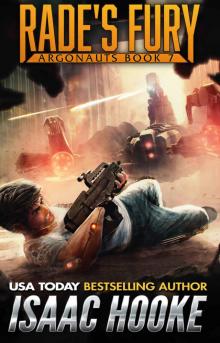 Rade's Fury (Argonauts Book 7)
Rade's Fury (Argonauts Book 7) Rebirth (The Forever Gate Book 6)
Rebirth (The Forever Gate Book 6) The Forever Gate Compendium Edition
The Forever Gate Compendium Edition Mechs vs. Dinosaurs (Argonauts Book 8)
Mechs vs. Dinosaurs (Argonauts Book 8)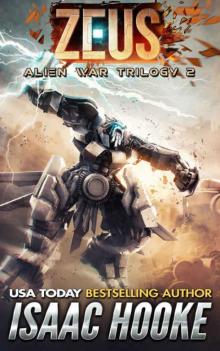 Alien War Trilogy 2: Zeus
Alien War Trilogy 2: Zeus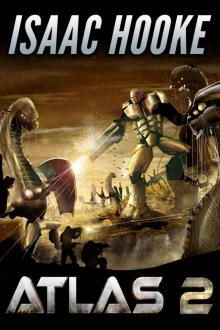 ATLAS 2 (ATLAS Series Book 2)
ATLAS 2 (ATLAS Series Book 2)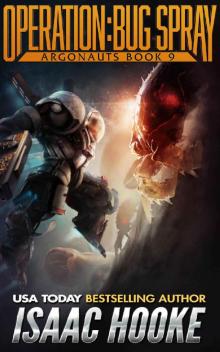 Operation_Bug Spray
Operation_Bug Spray